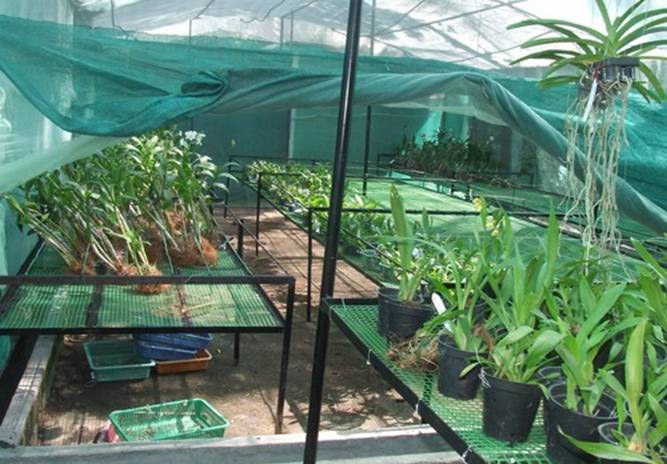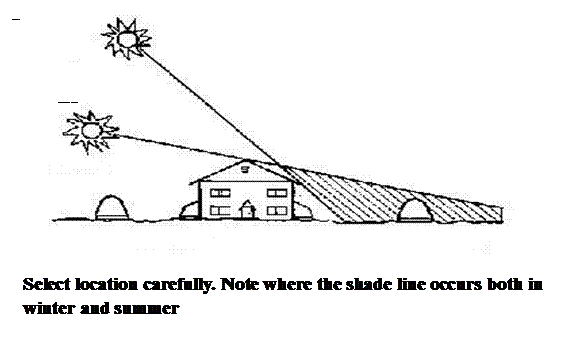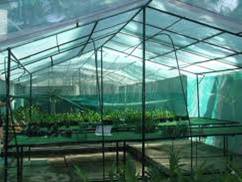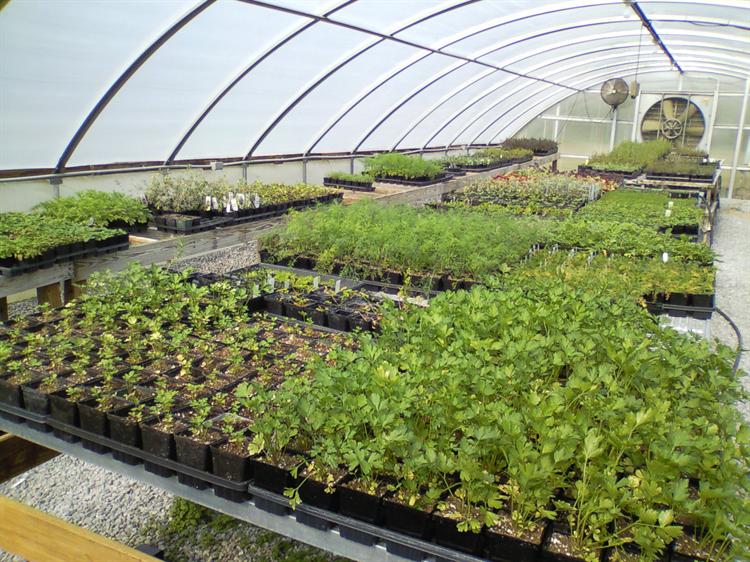
Crop: GREEN HOUSE
Scientific name :
Common / Local Name :

A greenhouse is a framed or inflated structure covered with a transparent or translucent material in which crops could be grown under the conditions of at least partially controlled environment and which is large enough to permit a person to work within it to carry out cultural operations (Dalrymple, 1979)
- Crop cultivation under inclement climatic conditions
- Certain crops cultivated year round to meet the market demands
- High value and high quality crops grown for export markets
- Income from small land holdings increased several fold
- Successful nurseries from seeds or by vegetative propagation prepared as and when necessary
- More Self-employment opportunities for educated youth on farm
- Manipulation of microclimate and insect proof feature of the greenhouse for plant breeding and, thus, the evolution of new varieties and production of seeds
- Glasshouse
- Fibre reinforced plastic house
- Polyhouse (UV stabilized PE)
- Low cost – upto Rs. 500/sq.m.
- Medium cost- Rs. 500-1000 /sq.m.
- High cost above Rs. 1000/sq.m.
- Naturally ventilated greenhouses
- Evaporatively cooled greenhouses
- High-tech greenhouses
- Gable
- Quonset
- Gothic arch
- Even span
- Lean-to
- Single-span
- Double-span or multi-span
- size of the polyhouse ?
- what location is the best ?
- what shape should be selected ?
- How to control environment of the greenhouse?
- Should be well connected with market
- Motorable road linking the greenhouse to city markets is desirable
- Site should have adequate communication means i.e. telephone, telex, fax, internet, etc.
- Should not be located near an industry on its downwind side because of possible pollution effects on greenhouse crops
- Should have sufficient windbreaks on all sides to minimize the wind damage
- Should be well drained
- Sufficient room for future expansion of the facility
- Availability of laborers
- In free-standing greenhouse, more sunlight is available in winter in an east-west oriented greenhouse
- In Multiplan greenhouses, the gutter should be oriented north south
- In naturally ventilated greenhouse, the ventilators should open on the leeward side.
- A freestanding greenhouse should have its long axis perpendicular to the wind direction.
- Sprinkling water on cover or whitewashing cover
- Natural ventilation using ventilation nets and ridge openings
- Mechanical ventilation using exhaust fans and mixing fans
- Using thermal screens or shade nets
- Overhead misting or fogging system
- Evaporative (fan-pad cooling) – only suitable for dry climates
- Using air conditioners (only for very high-value crops)
- There is a problem of dust and biofilm reducing the transmittance of covers and hence the covers need to be washed periodically.
- The PE covers lose their transmittivity in 5 years and need to be replaced.
- Greenhouse need to be fumigated and the soil solarized by mulching every year.
- Fertigation should be used for fertilizer application and irrigation.
- UV stabilized insect nets over all vents and openings, Insect traps /biological control to control vectors
- A headhouse or isolation chamber to enter the greenhouse without allowing disease vectors to enter is essential, it can be of insect proof net to facilitate ventilation by keeping inside greenhouse door open.
- Drip irrigation pipelines need to be flushed and cleaned periodically.
Based on covering material
Based on cost
Based on environmental control
Based on shape and structure
Design of greenhouses
FAQs
Site Selection
Location

Input availability |
Address/Contact details |
|
|
|
|
|
|
|
|
|

